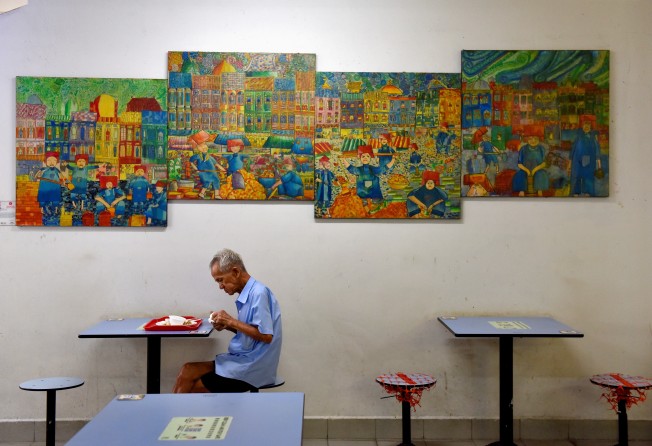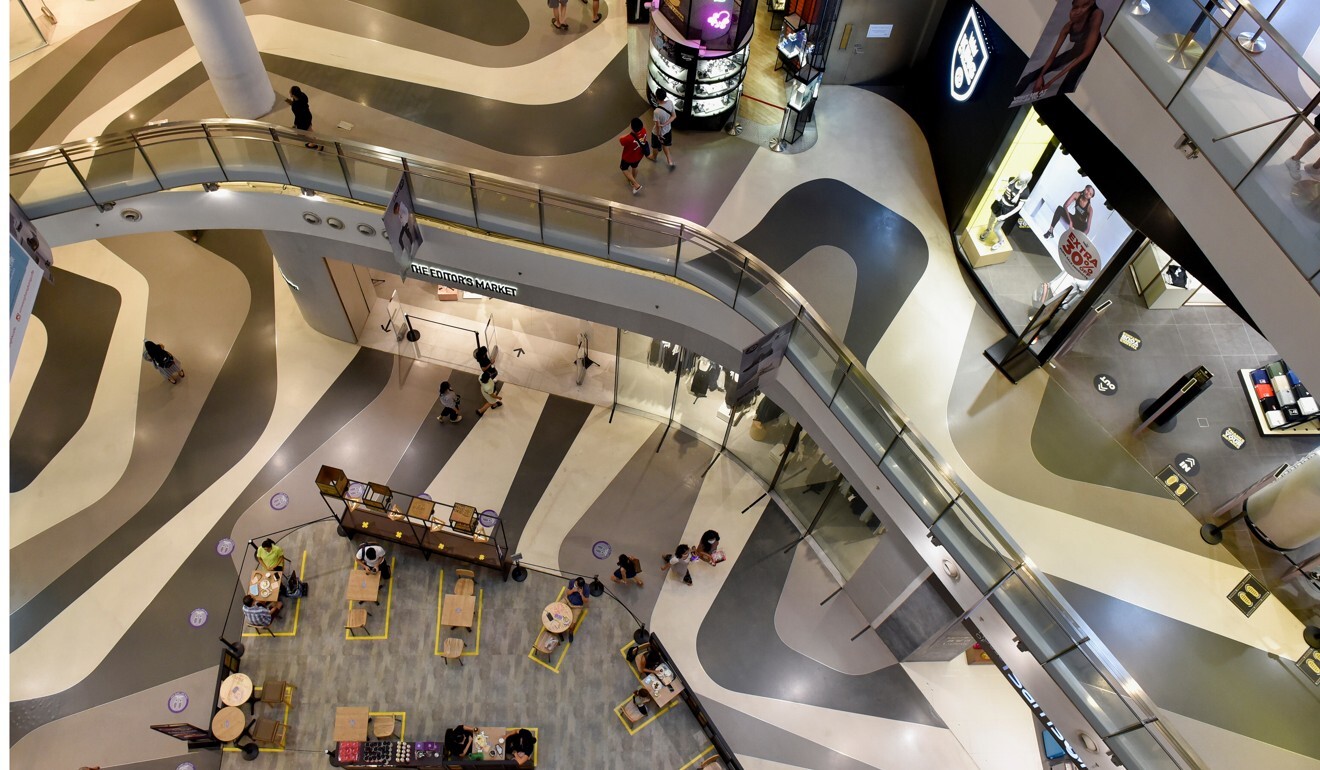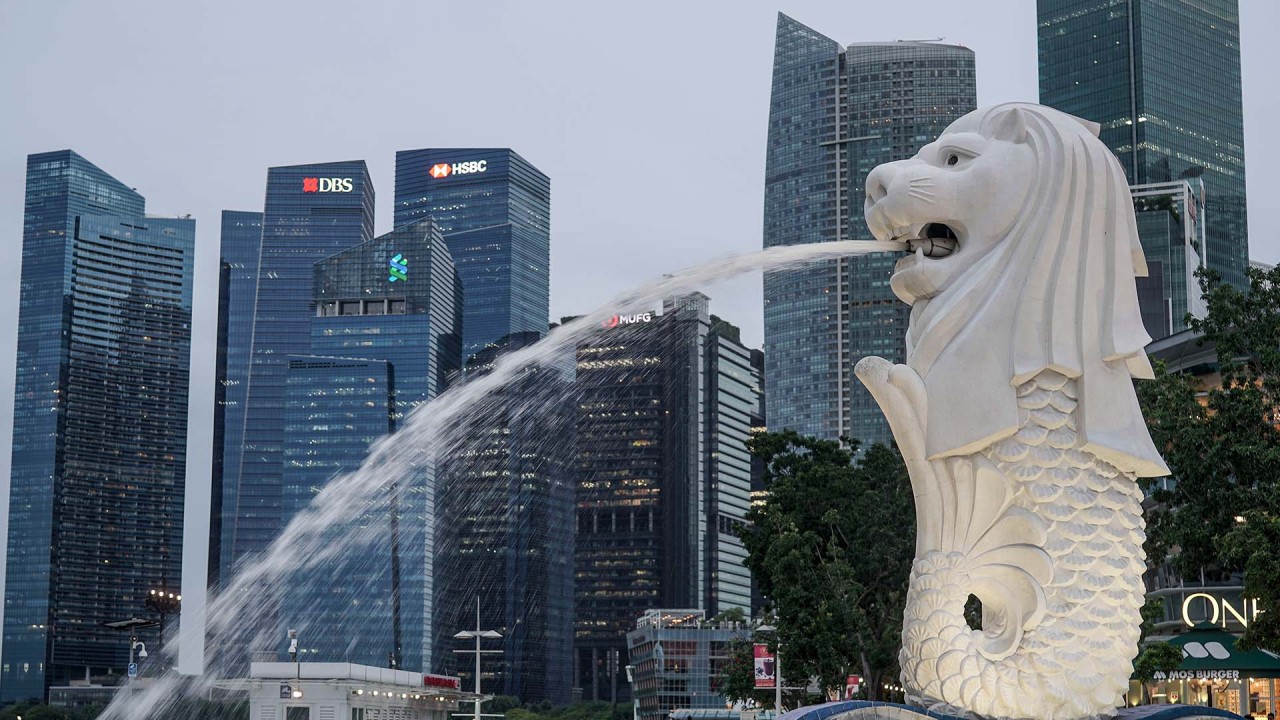Singapore to ease dine-in, social gathering rules as Covid-19 cases fall
- Social gatherings of up to five people will be allowed from Monday, up from two
- Singapore’s daily Covid-19 cases fall below 2,000-3,000 average recorded in recent weeks

Singapore will from Monday ease strict Covid-19 restrictions that were reimposed in September after its biggest outbreak of the Delta variant, though officials emphasised further reopening would be done in an incremental manner.
With over 85 per cent of the country’s 5.45 million people vaccinated – and some 22 per cent having received booster shots – some citizens have taken to social media to express annoyance at the government’s cautious approach to easing the measures.
Prime Minister Lee Hsien Loong told a business forum on Wednesday that while the government was pressing ahead with its plan to treat Covid-19 as endemic, he hoped its “step by step” approach would ensure the city state would not bear witness to the immense “human cost” seen in other countries where health care systems had been overwhelmed.
Officials from the republic’s Covid-19 task force said on Saturday that starting on Monday social gatherings of up to five people would be allowed, up from the current two.
Vaccinated residents – regardless of which household they are from – would also be able to dine out in groups of five.
Health minister Ong Ye Kung – one of three co-leads of the Covid-19 task force – said that the number of Covid-19 patients falling severely ill, who need intensive care units (ICUs) or who have died, have come down. This comes as more seniors, whom authorities say were at highest risk of being critically ill, get vaccinated.
The city state has been battling its largest virus outbreak since September, recording about 2,000 to 3,000 cases each day for the past weeks. On Friday, the daily count fell slightly to 1,734. The weekly infection growth rate dipped to 0.77 on Friday, and the ICU occupancy rate was 57 per cent. At one point last month, ICU occupancy rate was as high as 84 per cent.
Finance minister Lawrence Wong warned that if residents let their guards down, it would spark a resurgence of cases and it could quickly overwhelm the hospital system.

“We are trying very hard to avoid such a scenario and that’s why we are moving incrementally,” he said.
Wong said that the situation would be monitored and the next round of easing measures could come late December.
Ong, the health minister, also pointed out that there is now an emerging view among the scientific community that the Covid-19 vaccine is a three-dose vaccine.
As such, to allow more people to receive the third jab, authorities are now allowing people to take the booster shot five months after they completed their second dose, down from the previously announced six months.

02:44
Singaporeans welcome plan to charge Covid-19 patients for medical care if they refuse vaccines
Even with Saturday’s announcement, authorities struck a note of caution, saying that the situation remained unpredictable.
Ong said that Singapore was still going through a “fairly big wave of transmission”, he said. Though the city state was in a better position compared to weeks ago, it was still far from out of the woods, with thousands of cases each day.
He added that the government was refraining from a more ambitious resumption of activities as it kept an eye on the expected rise in social gatherings during the December holiday season, which could in turn trigger a fresh bout of infections.
Wong, the finance minister, said that there was still a possibility that Singapore would “tap on the brakes” again if its hospitals are overwhelmed, though the authorities would try to avoid that as much as possible.